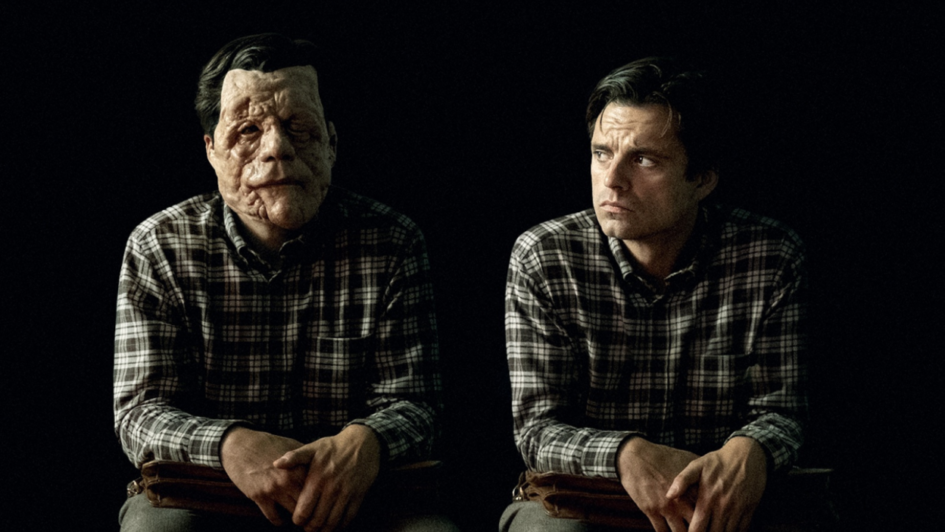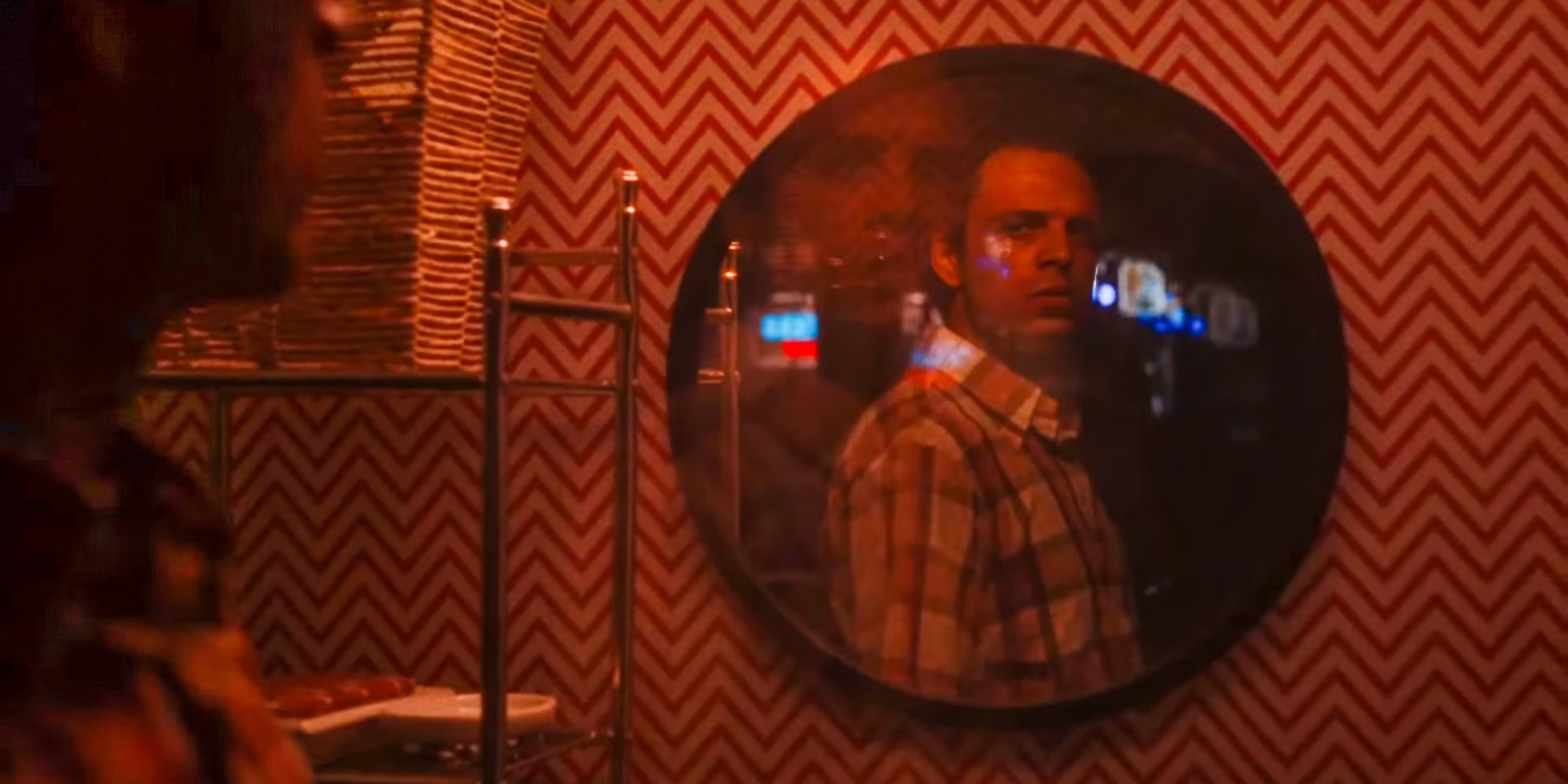A24’s A Different Man is essentially the male counterpart of The Substance. Both films explore the societal pressures on individuals and how these pressures influence our actions, particularly regarding our appearances. The Substance explores America’s obsession with life-altering drugs and an unquenchable desire for success. In contrast, A Different Man looks at our focus on appearance from another perspective: If your exterior meets all your desires, does it impact how you feel internally?
As I mentioned in my previous columns, I approach A24 films with caution. It’s not because I dislike them; I can’t think of one I haven’t liked or appreciated. My caution stems from the intense emotions many evoke within me, and I need to prepare myself to experience those feelings mentally. Hereditary and Midsommar are two films that affected me deeply, leaving me to think about them for days. While it may sound negative, I appreciate the intense horror these films evoke, even if it may ruin my week (I mean that in the best way possible).
A24 has become a haven for horror enthusiasts, though not every film in its catalog is strictly horror. Although A Different Man is categorized as a black comedy psychological thriller, it features body horror elements that evoke significant discomfort that horror fans will grasp onto.
I did not find much humor in it because I empathized with Edward and found it hard to laugh at the situation. Dark comedy is so relative that it can create a different experience for everyone, and that’s its beauty.
The movie follows Edward, portrayed by Sebastian Stan, who has a condition known as neurofibromatosis. This condition results in disfiguring facial features. He is a struggling actor who primarily lands roles in training videos focused on disfigurement in the workplace.
He becomes close with his new neighbor, Ingrid (played by Renate Reinsve), an aspiring playwright. While he develops feelings for her, his nervous and insecure nature prevents him from acting on those feelings. He desires human connection, but self-loathing prevents him from moving forward.
He decides to receive an experimental treatment to cure his facial condition and becomes Sebastian Stan, or “Guy Moratz,” in the film. Edward adopts his new alias and claims that Edward committed suicide.
Several years later, Guy has established himself as a successful real estate agent, residing in a well-appointed apartment that reflects his sophistication and success. One day, during a casual walk, he encounters a promotional poster announcing that Ingrid is producing an off-Broadway show she has authored, Edward. This is where the central conflict of the movie intensifies.
This film was directed by Aaron Schimberg, who has only three feature films to his credit. While his portfolio may be small, he has garnered several award nominations. He has won accolades in various categories, including Best Screenplay for this film at the Sitges Film Festival and being named one of the Top 10 Directors to Watch at the Palm Springs International Film Festival. After seeing this movie, I wholeheartedly agree with the latter recognition.
For someone with just three films under his belt, the craftsmanship displayed in this work is awe-inspiring. From the camera angles to choosing to use Super 16mm, it creates a unique look that encourages viewers to think and reflect on themselves.
The entire cast delivers exceptional performances. Sebastian Stan portrays a character that is quite different from the one he is known for in the Marvel movies, where he played the Winter Soldier. In this role, he embodies an introverted and anxiety-ridden man, making it hard to believe it’s the same actor. The real magic lies in the fact that even after his character’s disfigurement is removed, he continues to struggle with self-loathing despite his attractiveness, fame and wealth. He creates an authentic character who stumbles over his words and is simply awkward; it’s very believable.
Renate Reinsve, recognized for her role in The Worst Person in the World (2021), portrays Ingrid with fascinating complexity. She is friendly yet distant, honest yet appears untrustworthy, and knows what she wants while simultaneously seeming uncertain. This duality makes her performance captivating. It’s the strange juxtaposition that makes her fascinating.
You love her but also want to hate her at the same time.
Adam Pearson plays Oswald, a character who unexpectedly encounters the play after Guy has been cast. In a surprising twist, Oswald has the same disfigurement that Edward, or Guy, once had. Pearson, himself, has neurofibromatosis in real life. The standout feature of Oswald’s character is his vibrant personality. Despite his appearance, he possesses a genuine zest for life — something Edward never experienced, even after his transformation. People love him and don’t seem to think twice about his appearance.
Pearson is dedicated to challenging the stigma surrounding disfigurement, as evident in A Different Man. I would love to see Adam Pearson nominated for Best Supporting Actor because his performance is astounding and my favorite of the film.
The practical effects utilized for Stan are genuinely remarkable. I couldn’t determine whether it was Stan or Pearson performing, initially. Of course, when his face started to deteriorate and melt off, I recognized the significant ways in which prosthetics were utilized. No wonder the level of expertise went into the transformation because two-time Oscar-nominated makeup artist Mike Marino did it.
In some cases, Marino needed to apply makeup and prosthetics to Stan early in the day so he could leave for another job. Since Stan had a few hours before he needed to be on set, he would wander the streets of New York City, occasionally visiting his favorite coffee shop. This gave him a genuine glimpse into life with this condition. Most people didn’t even notice him, while others paused to take pictures.
Can you imagine what your daily life would be like if you looked different?
Another element I love about most A24 films is their musical scores. As someone deeply influenced by music and visuals, I find this film’s score particularly noteworthy. Composer Umberto Smerilli crafted a melody for the character Edward that is both dark and brooding, with hints of jazz influence. I found it to be hauntingly beautiful.
After Edward transforms into Guy, the music shifts to a more upbeat and uplifting tone. However, it still retains a hint of darkness, reflecting the contrast between the changes on the surface of our main character and his unchanging inner dialogue. I appreciate the attention to detail and how music can resonate with our souls just as much as the visuals.
Overall, I enjoyed this film and believe it is essential to watch it to understand how we perceive those who look different from us and where our perception of beauty lies. My main criticism of the film is that the third act feels convoluted, but it concludes well, leaving you satisfied yet with enough food for thought.
I give A Different Man four out of five stars. Lana says, “Check it out!”




